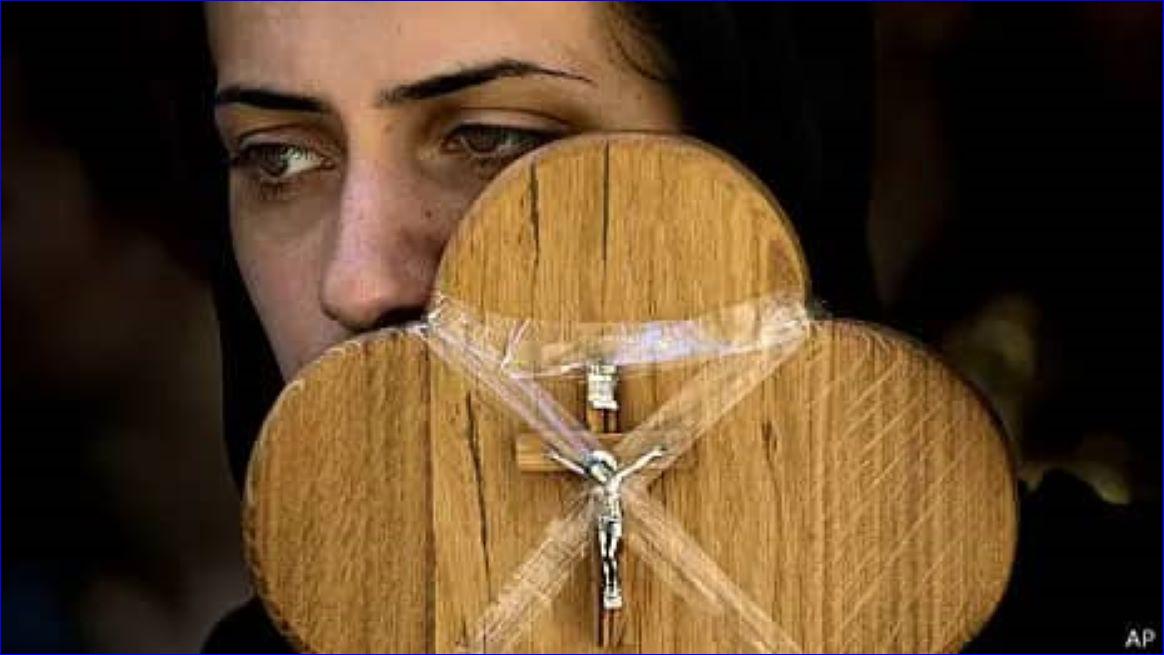


A report issued on 26 September 2025, by International Christian Concern (ICC) highlights the persistent suffering of Middle Eastern Christians who often find themselves with only 2 choices: leave their homes or learn to live under the shadow of intolerance. According to the organization, some Middle Eastern countries openly and legally tolerate discrimination and persecution against Christians within their borders.
Christians in Muslim-majorities countries like Iran, Saudi Arabia, Turkey and Yemen are persecuted for their faith. In Iran, Christians are regularly imprisoned for their beliefs. They are prohibited from speaking to Muslims about Jesus Christ, his life, or his teachings. Possessing a Bible in Persian (Farsi), the official language, is forbidden.
Similarly, in Saudi Arabia, handing out Bibles or converting from Islam to another religion is prohibited. The 2007 Anti-Cyber Crime Law and the 2017 Counter-Terrorism Law criminalize violating Islamic law, classifying it as a "terrorist crime" and a "threat to public order."
Turkey is home to Antakya, also known as the modern-day Antioch. Its laws facilitate the erosion of Christians' rights, treating them unequally compared to other religions. Under Turkish security codes N-82 and G-87, used to determine if an individual poses a "threat to public order and security," many Christian workers have been falsely accused of being "national security threats," barred from entering, or deported.
Groups like the Alliance Defending Freedom (ADF) report that the Turkish government systematically targets foreign Christian workers, despite their legal, long-term residence. The group stated that Turkish authorities use these laws to prevent "missionary activity" in the country.
In addition to security laws, Turkish authorities may also use the "national blasphemy" law, specifically Article 216(3) of the Penal Code, to punish religious minorities. This law effectively allows officials to imprison those who "publicly insult the religious values of a segment of the public." According to the U.S. Commission on International Religious Freedom (USCIRF), this law is often used to punish political opponents and those perceived as having "insulted or mocked Islam."
In Yemen, apostasy from Islam is illegal and punishable by death. Converts to Christianity are forced to practice their faith in secret, facing ongoing harassment and targeting by Houthi forces. According to Open Doors UK, public expression of Christian beliefs can lead to imprisonment, physical violence, or death.
While the ICC report focuses on these 4 countries, other human rights organizations like Open Doors, the USCIRF and Coptic Solidarity indicate that the situation for Christians in other countries is not much better.
In Syria, Christians have faced pervasive persecution since the conflict began. The incursion of the Islamic state (ISIS) led to the capture of Assyrian villages in the Khabur River Valley, resulting in killings and kidnapping of women, children and youth. After more than a decade of war, the Christian presence has dwindled due to displacement and devastation. New bloody assaults continue, such as the 22 June 2025 suicide bombing at the Mar Elias Church in Daramsuq (Damascus) which injured many and claimed dozens of lives.
The collapse of state authority has eroded trust in official institutions, compelling Christian neighborhoods like Bab Tuma to form local protection committees.
In Egypt, challenges range from restrictions on church construction to sectarian violence. A particularly grave issue involves the kidnapping of Christian women and girls who are often forced to convert to Islam or enter forced marriages. This crisis is compounded by accusations of inadequate state protection and a failure by security forces to pursue the perpetrators effectively.
In Jordan and Gulf states, Christians enjoy a degree of relative religious freedom and even have designated parliamentary seats for political participation. Nonetheless, legal prohibitions on missionary activity and apostasy from Islam remain, and unrecognized Christian denominations face legal hurdles that restrict their activities.
In Lebanon, Christians retain a pivotal political role under the Lebanese confessional system which mandates that the president be a Syriac Maronite Christian. However, severe economic crises and waves of emigration have intensified hardships and curtailed the historic demographic and cultural presence of Christians. Despite the immense challenges that forced many to seek safety far from their ancestral homeland, their roots remain deep in the soil of their spiritual birth.
Though wounded and bleeding, Christian enduring presence stands as a witness to an ancient history, their voice a quiet testament that the East loses a part of its very soul and identity without its Christians. Today, bearing the weight of profound losses, they continue to carry the ancient flame, hoping to keep an undying light alive in the heart of this sacred land.

or register to post a comment.